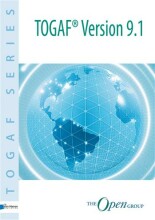Other institutions
20 important questions on Other institutions
European Economic and Social Committee.
In the negotiations that led to the Rome Treaties, it was decided to establish a consultative body composed of representatives of socio-economic interests. There were four principal reasons for this decision.
- Describe the three reasons for the decision:
- Five of the six founding states had such bodies in their own national systems.
- Essentially, the economic nature of the community. Sectional interests could express their views.
- Sectional interests directly affected by policy developments.
- Describe the role of the European Economic and Social Committee.
- The EESC is an Advisory body representing employers' and workers' organisations and other interest groups.
- What are the three key tasks of the EESC?
- Ensure that EU policy and law are geared to economic and social conditions, by seeking a consensus that serves the common good.
- Promote a participatory EU by giving workers' and employers' organisations and other interest groups a voice and securing dialogue with them.
- Promote the values of European integration, and advance the cause of participatory democracy and civil society organisations.
- Higher grades + faster learning
- Never study anything twice
- 100% sure, 100% understanding
The Committee of the Regions was established in 1994.
- What is the main role of the Committee of the Regions?
- Its main role is to be the Advisory body representing Europe's regional and local authorities.
- What are the European Agencies?
- Organisations that undertake policy functions but are not part of the mainstream political systems.
For the most part, the European Agencies are relatively weak, in their powers and are very restricted in what they can do. They have been entrusted with only limited independent decision-making powers.
- What is the main reason for this weakness?
- The main reason for this relative weakness is that the member states and the Commission do not wish to lose decision-making capacity.
The executive agencies are created for a limited period to manage EU programmes. They have a narrow task to implement the programmes.
- Provide some examples of European Executive Agencies:
- Education.
- Audiovisual and cultural agency.
- Education and training.
- Active citizenship.
- Youth.
- Which agency is more important? Executive or regulatory?
- Regulatory agencies are politically more important.
They undertake a wide range of different tasks in many policy areas.
- Describe the role of the European Investment Bank:
- The European Investment Bank, provides funding for projects that help to achieve EU aims, both within and outside the EU.
In 2016 the EIB granted loans totalling 77.5 billion euros.
The European Investment Bank has two capital sources.
- Describe those sources:
- Capital paid-in by member states.
- Borrowing on the capital market.
- What does the Board of Governors do in the EIB?
- The Board of Governors decided on the Bank's subscribed capital and lays down general directives on the Bank's activities.
- What does the Board of directors do in the EIB?
- The Board of Directors has general responsibility for ensuring that the Bank is managed according to the provisions of the TFEU, the Bank's Statute, and directives issued by the Governors.
- What does the Management Committee do in the EIB?
- The Management Committee controls current operations, makes recommendations to the Board of Directors and is responsible for implementing decisions made by the Directors.
- What is the main role of the European Central Bank?
- Its main role is to manage the euro, keep prices stable and conduct EU economic & monetary policy.
- Who are in the Ecofin council?
- National Ministers of Finance from all EU member states.
Broad outlines of EU macroeconomic policy; Take action against eurozone states with excessive government deficits.
There is some protection of bankers from political pressure in the treaties?
- What protection is described above?
- Article 130 TFEU: Neither ECB, not a Central Bank shall take instructions from Community institutions or from any government.
The European Central Bank has five tasks.
- Describe those five tasks:
The ECB:
The ECB:
- Sets the interest rates. It lends to commercial banks. Controlling the money supply.
- Manages foreign currency reserves. Buying or selling of currencies to balance exchange rates.
- Supervision of financial markets and institutions.
- Authorization of production of euro banknotes by Eurozone countries.
- Assesses risks to price stability and monitor price trends.
- What is the role of the European Court of Auditors?
- The role is to check if EU funds are collected and used correctly, and help improve EU financial management.
- What is the main task of The Court of Auditors?
- Examine all European Union revenue and expenditure accounts, the same for bodies set up by the European Union unless the relevant legal instruments preclude such examination;
- And to provide the council and the European Parliament with a Statement of Assurance.
- What is the statement of Assurance about?
- The statement of Assurance is about the reliability of the accounts and the legality and regularity of the associated transactions.
The question on the page originate from the summary of the following study material:
- A unique study and practice tool
- Never study anything twice again
- Get the grades you hope for
- 100% sure, 100% understanding
































